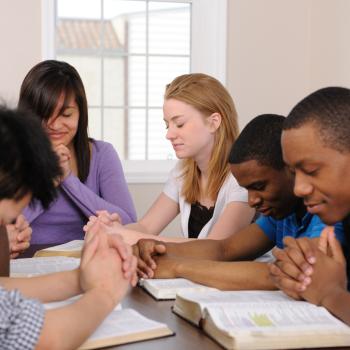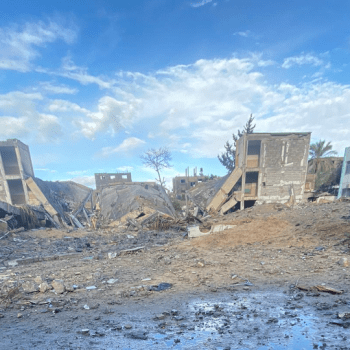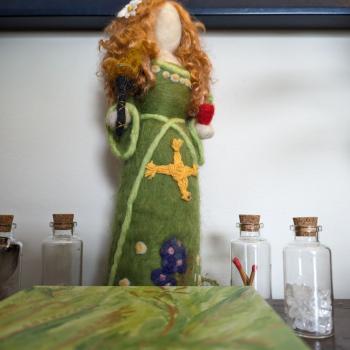Beyond expressing the deepest sympathy for his family, I have found it difficult to know how to write about the tragic shooting death of young Trayvon Martin, the Florida teen who was killed in February by a neighborhood watchman. One of the main reasons is that I haven't formed an opinion yet of what actually happened.
I don't know if I'm the only person in America in this predicament. Some days it seems that way. Everyone on TV seems awfully certain about what happened, or at least about what the issues are—or at any rate about the other (political) side's disingenuous attitude. But speaking for myself, I'm not sure. Even if Trayvon was not killed out of racist hatred, that certainly wouldn't mean that his killing was justified, or that no one made any mistakes. The shooter and the police might have done so. The matter clearly warrants a full investigation.
And while I'm not prepared to jump to conclusions about racism in this incident, I am in full sympathy with those who want to turn a spotlight on the authorities, and make sure that nothing is swept under the rug, that whatever justice we can manage is done, and that we learn from this tragedy the things that can help us in the future. A teenager was killed, under circumstances the public doesn't fully understand. We need to get to the bottom of it.
Maybe I'm not alone, though, in having questions rather than certainties. Just as I am not convinced that non-black Americans are uniformly indifferent to Trayvon Martin's fate, so I doubt that the voices calling for extra-legal measures against the shooter, George Zimmerman, are representative of black Americans. I have known too many people of all kinds to suppose that politicized archetypes are representative—and I think most of us have today.
It's easy to be swept along in the media fervor and the extremely vocal arguments about this case, but I don't really think the anger and politics that dominate the media coverage are the truth on the ground across America. A moment's reflection reminds me that in my thoroughly "mixed" neighborhood, nothing has changed in how we all regard and interact with each other. We are simply neighbors.
Granted, this is suburban America—by no means wealthy, but solidly middle class. As an adult I have always lived in "mixed" middle-class American neighborhoods. Millions have. There is a very large, expansive America in which people of all races and ethnicities live in the same neighborhoods and see their security and their quality of life in the same way. This America is real. It has existed everywhere I have lived in the United States (including Florida).
I am emphatic about this because it is now a significant, defining reality. America has changed since the 1960s—changed in the ways people back then hoped it would. The neighborhoods and work places people once dreamt of are here, all around us. The record of renewal for poor, inner-city neighborhoods is spotty; it's not that there is nothing left to be done. But the races of America living together in harmony is a present reality in too many places to be discounted as meaningless or unrepresentative.
What this has meant is a convergence of perspectives on something like Trayvon Martin's killing. It is not that there is a "white" or a "black" attitude about it, so much as that there is a responsible, concerned, rule-of-law attitude. Black Americans may be more likely to suspect unfairness in the police handling of the incident; even today, many of them have been subjected to unpleasant—and unwarranted—suspicion by the police. In my unscientific sample, meanwhile, I have found white and Latino Americans particularly prone to conclude that Zimmerman was ill-trained and didn't handle his weapon responsibly.
We all approach the event with preconceptions. But I think there is a large swath of America that agrees on the important things: that the incident requires investigation, that the investigation must be transparent and accountable, and that the rule of law should prevail. I have known a number of the people who make up this swath, and they come in all races and backgrounds.
Jesus said, "Blessed are the peacemakers, for they will be called children of God" (Mt. 5:9). As he wept for the family of his friend Lazarus, so I believe he would weep for Trayvon Martin and his family. Whatever we find out about the circumstances of Trayvon's death, nothing can mitigate the tragedy of it. But there is an amazing reality in this country that is not contravened by the killing in Florida. The races can and do live together, and see public order through the same commonsense lens.
If we heard from ordinary Americans on the nightly news, rather than from politicians and professional advocates, I believe we would hear a different kind of dialogue. We can trust the American people to have a common interest in justice and the rule of law.
And I have a strong sense that it's important to say that, at a time when we're not hearing it said. America is already a better place because of her people. It's the people who have buckled down and found a way to live together. The demand for the truth about Trayvon Martin's death, and the pursuit of justice, do not divide us; they unite us. Of that I have no doubt.
12/2/2022 9:06:00 PM





